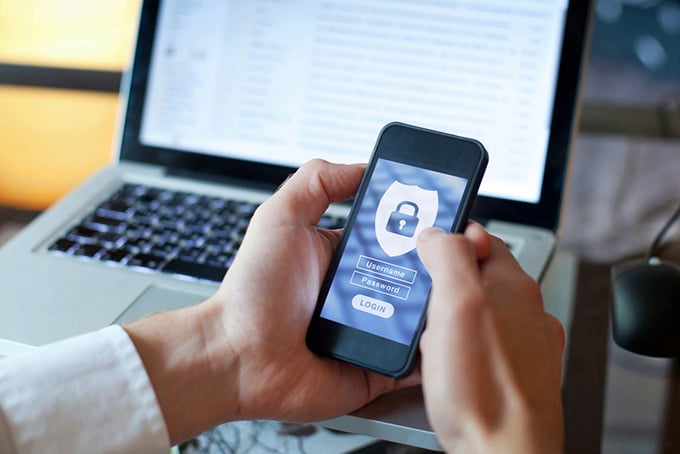
Concerned about a recent data breach? Worried about identity theft? Looking for a little extra peace of mind? A credit freeze might be exactly what you’re looking for. This free (that’s right, free!) service makes it harder for scammers to ruin your good name – and your good credit.
Of course, a credit freeze isn’t a quick fix or a cure-all, and it’s important to know how the process works before you choose to put your credit report on ice. Is a credit freeze right for you? We put together this list of 10 common credit freeze questions to help you decide once and for all:
- What is a credit freeze? A credit freeze blocks most creditors and lenders from accessing your credit report, which makes it harder for would-be thieves to open new accounts using your identity. Here’s how it works: Let’s say a thief gets access to your name, birthdate, and Social Security number. She takes this information and applies for a new credit card or a car loan in your name. The credit card lender tries to run a credit check. If your credit is frozen, the lender can’t access your credit report. And without a credit report, they won’t open a new account. End of story.
- Why should I freeze my credit? A credit freeze is a good idea if you’ve been affected by a data breach or if you suspect that your personal information has been compromised as a result of phishing or hacking. You might also want to consider a freeze if you’ve noticed anything fishy on your credit reports.
- How do I freeze my credit? It’s super-easy. All you have to do is contact each credit reporting bureau to get started. Just make sure to have your Social Security number on hand before you get started – you’ll need it.
- To contact Equifax, click here or call 1-800-685-1111
- To contact Experian, click here or call 1-888-397-3742
- To contact Transunion, click here or call 888-909-8872
Once you fill out the necessary forms and provide the information requested, you’ll receive a PIN number. Hang onto that! You’ll need it any time you want to lift or reinstate your credit freeze.

- Will a credit freeze lower my credit score? No. A credit freeze won’t have any affect on your credit score.
- What if I want to un-freeze my credit? One of the great things about a credit freeze is that it’s pretty easy to undo if you need to, say, rent an apartment or apply for a job (yes, some employers do check your credit). It typically takes one to three business days to lift the freeze, and you can always reinstate the freeze later.
- How much does a credit freeze cost? In case you missed it, a credit freeze is 100% free! That’s right: You pay nothing.
- How long does a credit freeze last? A credit freeze lasts as long as you want. You can lift it in a few weeks, or leave it in place for years – it’s your call. Just keep in mind that you’ll have to lift it if you ever want to apply for new line of credit or a mortgage. You’ll be turned down automatically if your credit is frozen.
- Is a credit lock the same as a credit freeze? They’re very similar: Both of them temporarily “lock down” your credit report, making it inaccessible to most lenders, credit card companies, and so on. But there are some key differences: You don’t get a PIN number with a credit lock, and you can lift a credit lock in a few minutes rather than a few days. That said, the terms of a credit lock typically favor the reporting agency (for example, if you sign a credit lock agreement, you may be prevented from, say, seeking legal recourse if someone manages to open a credit card in your name). While a credit freeze may take a bit longer to lift, it offers the same protection without the need to sign away your rights.
- What’s the difference between a fraud alert and a credit freeze? While fraud alerts and credit freezes both offer protection against potential theft, fraud alerts are slightly less strict. Unlike a credit freeze, a fraud alert doesn’t restrict access to your credit report – but it does require lenders and banks to verify your identity before loaning you money or allowing you to open a new account. Another difference: While a credit freeze lasts as long as you want, fraud alerts typically expire after 90 days. (There are a few exceptions to this. If you’ve been the victim of identity theft, you can extend your fraud protection to seven years.)
- Can I freeze my child’s credit? And should I? This question might sound ridiculous. After all, kids under 18 shouldn’t have any credit, right? While that’s technically true, scammers aren’t exactly known for sticking to the letter of the law, and they’ve been known to use kids’ names and Social Security numbers. And the worst part is, if your child is a victim of this kind of theft, he or she may not know until they become adults and want to apply for their first credit card or buy a car. Freezing your child’s credit now can guard against unpleasant surprises later.
Have questions about credit? Looking for advice on paying down debt, budgeting, or getting your finances back on track? The friendly team at American Credit Foundation can offer advice on budgeting, saving, and managing debt.